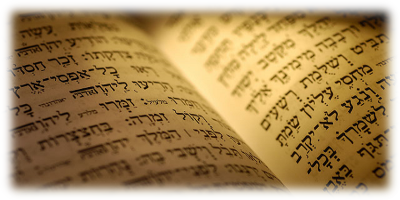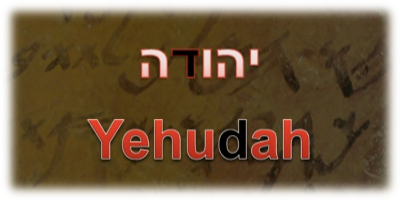Is the Tetragrammaton (YHWH or YHVH) originally pronounced "Yehovah?" Or is there evidence to suggest that this was "not" the original pronunciation. In this video, we will be examining how the vowel "o" is written in Masoretic Hebrew text and in the Dead Sea Scrolls, which will provide us some clues on this debate. Just as is the case with many of the mysteries of the pronunciation of the name YHWH, and many other Hebrew words, it comes down to interpretation of evidence and only when we find Moses' tape recorder will all of these questions be answered.
Nehemiah Gordon has been a strong advocate for the pronunciation Yehovah, so I sent him an email concerning the use of the "o" in Yehovah and emailed him. Below is my question, but I am adding some clarifications for your benefit in brackets.
I have noticed that words in the Masoretic text that include the nikkud cholam [The nikkud are the dots and dashes added to Hebrew words in the Masoretic text. The cholam is a single dot placed above a letter to represent the "o" sound] are spelled with a vav in the Dead Sea Scrolls. For instance, אלהים includes the cholam in the Masoretic text, but in the Dead Sea Scrolls it is spelled אלוהים [In the Masoretic text this word is written as אֱלֹהִים, with the cholam above the letter ה (h)]. The same can be seen in the name יעקוב, the word כול, and many others.
If in fact "The Name" is pronounced Yehovah, then this name must include the cholam, but we never see a double vav in "The Name" in the Dead Sea Scrolls. [The pronunciation Yehovah would be written as יְהֹוָה. If this were the pronunciation we would expect to see it written as יהווה in the Dead Sea Scrolls, but we do not.] Based on this, my assumption has been that Yehovah (or any other form that includes the vowel "o" or "u" and the consonant "v") could not be the pronunciation as the Dead Sea Scrolls always show only one vav and therefore can only be pronounced as the vowel "o" or "u" *OR* as the consonant "v."
The following is Nehemiah's response.
Regarding the double Vav, this is an interesting suggestion. The Qumran scrolls are not consistent about inserting Vavs to indicate Cholam or Shuruk/ Kubutz. In the case of the Name, the matter is complicated by the fact that it would produce a double Vav. I would be very surprised to find such a thing in Qumran. In the Masoretic Text we find these double Vavs representing the sound Vo (as in Avon, Mitzvot, etc.) and Vu (as in Yishtachavu, Nilvu). That means the double Vav in the hypothetical form יהווה* might be pronounced YHVuH or YHVoH. I checked Hovah (usually translated "ruin"), since this has a similar consonant and vowel pattern. The way it appears at Qumran is quite interesting. It is written as HVYH in 1QIsa-a, which presumably is Hoyah, a linguistic variant to Hovah, and identical to what we find in the Masoretic Text in Ex 9:3.
If your suggestion is correct, I would expect to find a double Vav in another instance where cholam is followed by consonantal Vav: -ov-. Here are some examples I found that should employ a double Vav if your suggestion is correct:
Isa 24:2 KaLoveh כַּלּוֶֹה MT; 1QIsa-a כלוה (not כלווה)
Isa 49:23 Kovay קוָֹי MT; 1QIsa-a קוי (not קווי).
Ps 69:7 Kovecha קוֶֹיךָ MT; 4Q83 f19ii_20:28 קויכה (not קוויכה)
These are the only examples I could find in the Tanakh of Cholam followed by Consonantal Vav where the text was also preserved in the DSS. I actually had no idea what I would find until I looked and the evidence seems to disprove your suggestion or at least not support it. There were three opportunities for the DSS to use a Vav to mark a Cholam followed by a consonantal Vav and in all three case it failed to do so.
I searched for Kubutz followed by consonantal Vav and only found one example in the Tanakh (Nu 26:23), but this word is not preserved in the DSS.
And here is my response back to Nehemiah
How confident are you that the nikkudot preserve the original pronunciation of Hebrew words? I ask because I have the opinion that while they do preserve the pronunciation fairly well, history suggests that the pronunciations of words do change over time, especially from one dialect to another. So, while כלוה (Is 24:2) is pronounced "kalovah" in the Masoretic text, could it have originally been "kalavah" (or something similar)?
And that is where we are at on this issue at this time.

Like what you’re discovering? Continue the journey from Bible reader to translator.
|






